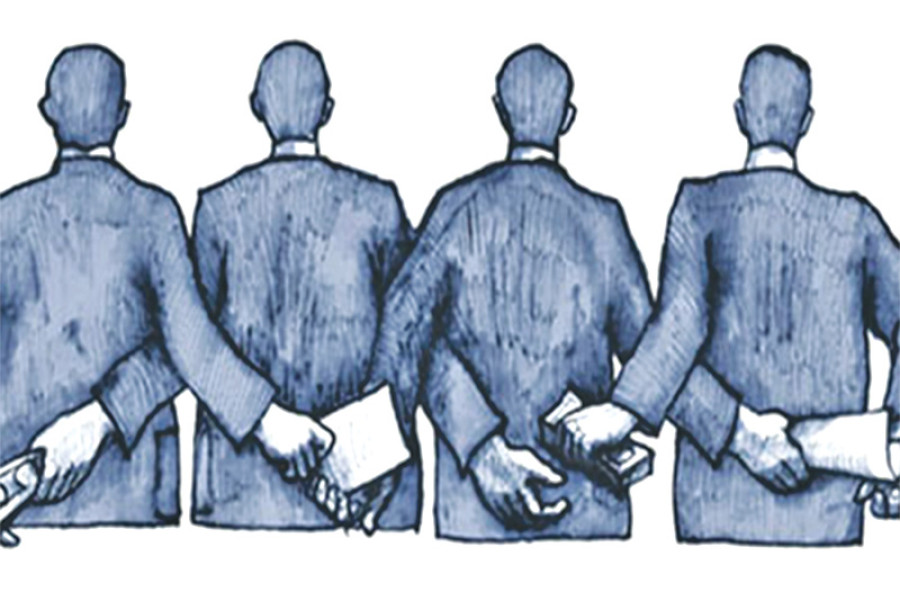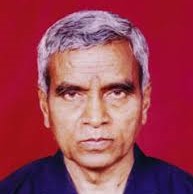Opinion
Crystal clear
Nepal, as party to the UN Global Compact and the UN Convention against Corruption (UNCAC), is required to frame laws to control corruption. Nepal signed the UNCAC on December 10, 2003 and ratified it on arch 31 2011.
Ram Dayal Rakesh
Nepal, as party to the UN Global Compact and the UN Convention against Corruption (UNCAC), is required to frame laws to control corruption. Nepal signed the UNCAC on December 10, 2003 and ratified it on arch 31 2011. A review of the implementation was scheduled for 2013-2014. The 2006 interim constitution of Nepal had provisions for controlling corruption, as did the constitution promulgated two years ago. A number of legal frameworks such as the Corruption Prevention Act 2002, The CIAA Act 1991, The Good Governance Act 2008, The Public Procurement Act 2007, The Right to Information Act 2007 and the Army Act 2006 exist for the purpose of curbing corruption.
Institutional failure
The major institutions in Nepal that deal with corruption are: The Commission for Investigation of Abuse of Authority (CIAA), a constitutional body established in 1991 which has the chief function of investigating and prosecuting cases of corruption and improper conduct; The National Vigilance Centre, a corruption prevention body under the PM’s office; The Public Prosecutor and other institutions of the Attorney General; The Auditor General, established in 1961; The Judicial Council; The Department of Revenue Investigation (DRI); and The Special Court. Each year, these institutions present their Audit Reports to the government.
It is, however, a matter of great regret that the CIAA’s mandate is only to investigate corruption incurred by public office holders. On top of that, the mandate further limits the CIAA to act as a mere recommendatory body whereas many other countries such as India, Singapore, Malaysia and territories like Hong Kong have legally mandated their anti-graft bodies to investigate and prosecute perpetrators of corruption in all fields. Anti-corruption ordinances in Hong Kong and many countries also allow for the punishment of bribe givers. The CIAA should play the role of ombudsman, but it does not have the power to prosecute.
The DRI, which falls under the purview of the Ministry of Finance, deals with the detection of revenue leakage. The DRI was established with the mission to control illegal activities in matters of taxation and to conduct research activities in tax administration. The objective of the department has been to control leakages in direct taxes as well as indirect taxes, to check the irregularities in foreign exchange transactions and to take legal action against these activities.
Corruption unchecked
While many mechanisms may exist in the state to control corruption, it continues to spread in every sector. Nepal is rampant with corruption, lawlessness and impunity. The CIAA was itself involved in controversy last year, however, it now seems to be taking up its mantle as an investigative authority once again. It has recently initiated investigations into the alleged corruption of Maoist leaders. The CIAA is entrusted with the authority to conduct investigations into the giving and taking of grants, illegal acquisition of property, attempted corruption or being an accomplice to corruption, and giving false particulars for a public service job.
Recently, political leaders themselves violated all the constitutional principles, values and norms of public decency. The ruling parties’ leaders took huge amounts of money as bribes and appointed ambassadors, general managers and chairpersons at their discretion. This is blatant corruption. It shows that, while the country may be democratic, meritocracy is completely absent. There is no ethics-based politics, making for a deplorable situation.
Transparency International (TI) defines corruption as the abuse of entrusted power for private gain which hurts everyone who depends on the integrity of people in a position of authority. Corruption is a global phenomenon and no nation, big or small, rich or poor, is spared by it. Combating corruption calls for unhindered cooperation and common standards for the international community.
According to TI’s Global Corruption Barometer (GSB) 2016 Nepal is the 131st least corrupt nation out of 176 countries. The corruption plaguing our nation cannot be denied; there is a deplorable lack of transparency and accountability as well as growing impunity and government deficit created by dysfunctional institutions. According to TI’s GSB, political parties are the most corrupt. In Nepal corruption has been promoted and patronised by ministers, Members of Parliament and high-ranking government officials.
Recently, the Nepali government should be commended for curbing corruption in two high-profile cases. Chudamani Sharma, Director General of Revenue Department, had been removed from his post on the charge of corruption some months before. Likewise the government has sacked Gopal Bahadur Khadka, General Manager of Nepal Oil Corporation because he was accused of misappropriating around Rs800 million while buying land plots worth Rs1.61 billion in Bhairahawa, Chitwan, Sarlahi and Jhapa. Now it is the duty of CIAA to take necessary action against Khadka. CIAA has drawn flak for neglecting to expedite the case against Khadka because of the political patronage he enjoys.
Integrity, transparency and accountability should be promoted in the public and private sectors by political bodies and the government so as to strengthen efforts against corruption. Participation of civil society and citizenry, promotion of ethics, and robust mechanisms for implementation and monitoring are other prerequisites.
Alaina B Teplitz, Ambassador of USA to Nepal has remarked that the array of allegations of corruption, the minimal accountability that those involved face, and the public fatigue make it clear that corruption has permeated all levels of the public and private sector in Nepal.
It is clear that in Nepal there is nothing transparent except corruption.
Rakesh is Vice-president of Transparency International Nepal




 22.59°C Kathmandu
22.59°C Kathmandu











